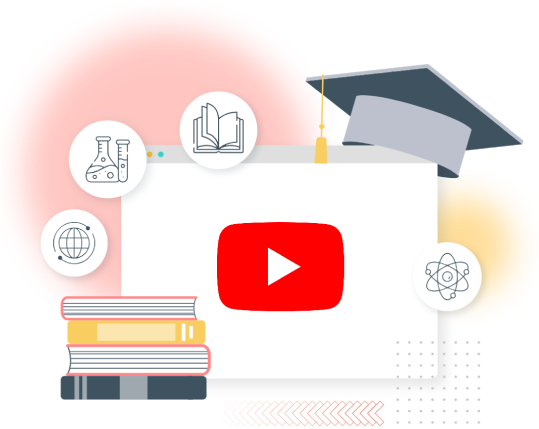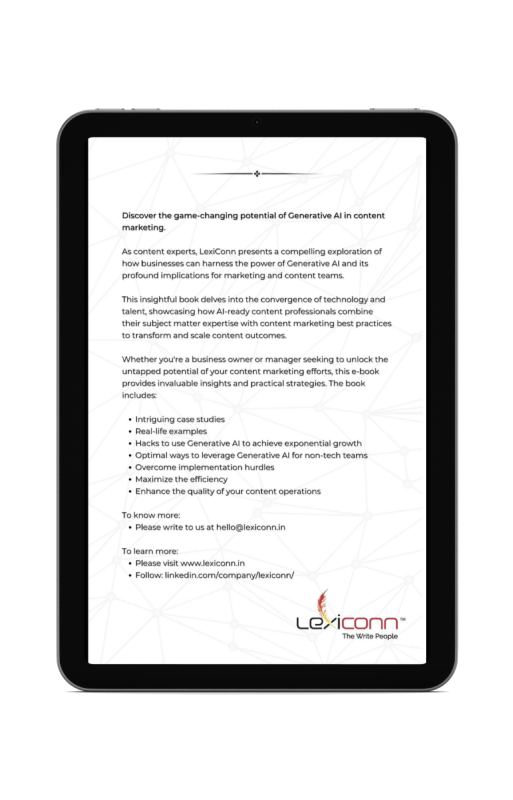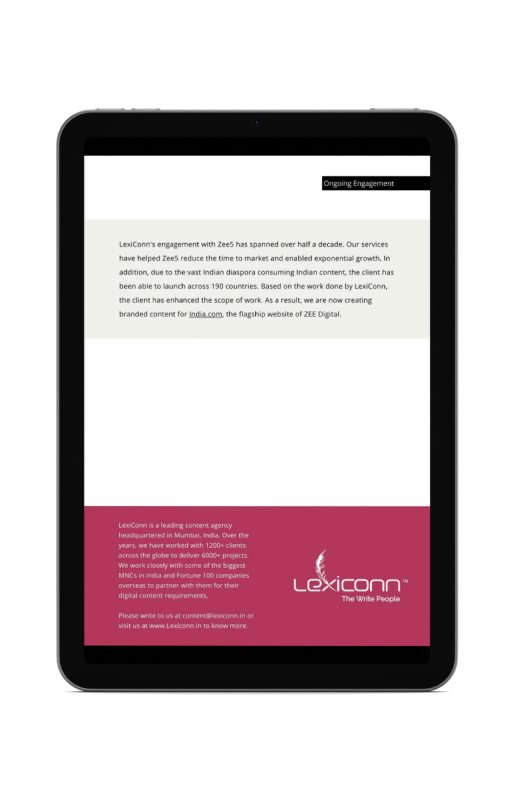

In today's digital landscape, optimizing content for SEO isn't just a nice-to-have—it's essential for online success. What good is a visually attractive website if it remains undiscovered? That's where Search Engine Optimization (SEO) comes into play, and at the heart of effective SEO lies high-quality web content.
People perform an average of 40,000 Google searches every second, many of whom could be your potential customers.
That's why optimizing your content to rank organically in SERPs is worth it. The payoff can be significant: the average click-through rate (CTR) on the first organic result is almost 40%, compared to only about 2% on an ad.
However, quality SEO content is important for many more reasons than just ranking in the SERPs. Here's how you can optimize SEO to grow your ROI and increase CTR.
High-quality SEO content serves as a magnet for your ideal customers. When you create valuable, informative, and engaging content, you're not just throwing words on a page – you're answering questions, solving problems, and providing insights that your audience is actively seeking.
The primary goal of effective SEO is to gain higher rankings in search engine results, increasing your visibility to potential customers. Consider this:
By creating content that resonates with your audience and addresses their needs, you'll be more likely to appear at the top of search results, increasing your prospects of being discovered by potential leads & clients.
Now that you have a basic understanding of the importance of optimizing content for SEO, let's delve into optimizing content for SEO to rank your websites well in search engines.

When you truly know your audience—their interests, pain points, and desires—you can create content that speaks directly to them. This isn't just about attracting traffic; it's about attracting the right traffic—people genuinely interested in what you offer.
There are several powerful strategies at your disposal:
Once you understand your audience's needs and pain points, you can create optimized content that speaks directly to them—addressing their needs, answering their questions, and solving their problems.
Here is an example: if you run a furniture store, you might find that search terms like "best office chairs" or "Best Chairs of 2024" are where it's at in terms of customer interest.
The key is to get inside the mind of your target audience. What are they curious about? What problems are they trying to solve? Dive deep into their search habits, and you'll uncover a goldmine of engaging topic ideas that will capture their attention.
Here’s how to perform effective keyword research:

Google closely monitors your click-through rate (CTR), and it's a game-changer for your rankings. When more people click on your search results, it gets more traffic. Why? Because it sends a powerful signal to Google that your content is unique and relevant.
Here's your guide to a good meta:
Staying focused on your topic and target keywords is important when creating content. Address the key question head-on and ensure the content reflects the latest views on the topic. This helps with SEO and ensures your content is clear and relevant to your audience.
Here are some suggestions for writing SEO-friendly content:
Internal linking is like giving search engines a guided tour of your website. It helps them understand how your pages connect and relate to each other, creating a clear map of your site.
Additionally, internal linking passes authority from well-performing pages to newer or less visible ones, distributing SEO value throughout your site.
It also enhances SEO content for your website, boosting the ranking potential of your pages. Here’s how to effectively use internal linking:
By building strong internal linking, you can enrich the SEO value of your content and improve the overall user experience & CTR on your website.
There are 200 million active websites in the world. Hence, backlinks are like votes of confidence for your website. When other reputed sites link to you, search engines take notice. It's a signal that your content is valuable and trustworthy.
Want to boost your SEO? Start building those backlinks! Here are some strategies:
Content comes in many forms, and using multiple formats can assist you in reaching a larger audience base and improving your SEO significantly. Different formats can include blog posts, videos, infographics, whitepapers, ebooks, and social media posts.
Recent data underscores the growing importance of diverse content types. Cisco Visual Networking Index (VNI)forecasts that video content will dominate 82% of all internet traffic by 2024. Additionally, infographics are shared three times more frequently on social media than other content types. Different formats can include:
By leveraging different content formats, you can increase website traffic, keep the audience engaged, generate more ROI, and improve your chances of ranking higher in search results.

How do you know if your SEO efforts are paying off? Here are some key metrics to watch:
Consistency is key in content optimization. Regularly updating your content, staying abreast of SEO trends, and adapting to algorithm changes will help maintain and improve your search engine rankings.
Optimize your content for SEO by using keyword-rich titles and subheadings, clear URL structures, internal and external links, and mobile optimization.
Remember, focus on offering value to your audience; the SEO benefits will naturally follow.Elevate your online presence with expert content optimization. At LexiConn, we specialize in creating SEO-optimized content that drives results.
hether you want to increase your visibility, drive more traffic, or establish authority in your niche, our expert team has the skills and experience to make it happen
LexiConn also offers a free 30-minute content consultation session to help you with your content strategy. Let's discuss how we can collaborate to unlock growth opportunities for your organization! Our team of experienced SEO website content writers and SEO specialists is committed to helping you boost your visibility & hook you with your target audience. Visit us at LexiConn or email us at [email protected]



I have read and accept the Privacy Policy
Read More